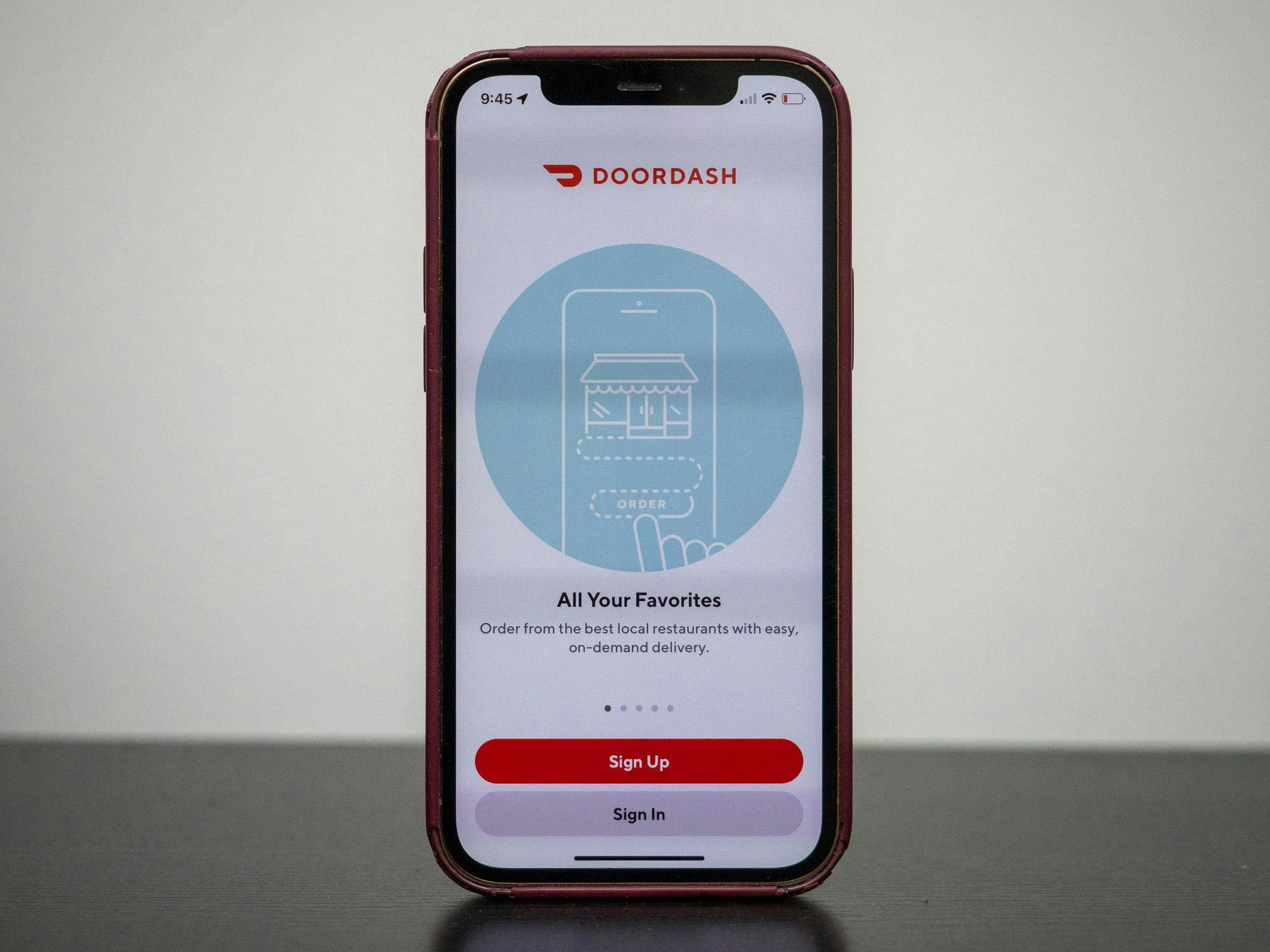Earlier this month, DoorDash announced upsetting news to all of us avid delivery app users: If you don’t tip your dasher, expect a longer wait. While DoorDash has provided the rationale that this new tipping mechanism allows for a triple-win situation, promising faster deliveries for consumers, higher rewards for delivery workers and increased repeat orders for restaurants, the consequences of such policies become apparent in consumer dissatisfaction.
A parallel experience I had with Uber Eats effectively illustrates this frustration. I recall a time when I ordered boba with my friend, and we ended up with a total of $15. Logically and sensibly, we preemptively tipped $3, thinking that it was a decent amount. However, even after ten minutes had passed, no one picked up our order. It wasn’t until we finally increased the tip from $3 to $5 that a delivery man instantly picked up the order. In the midst of my frustration over the extra $2 that I had “wasted,” it also became evident to me that the tip was the delivery man’s sole incentive for taking on the order. Without the assurance of a substantial tip, it seemed unlikely that our order would have been picked up at all. This anger all comes down to the unreasonable concept of pre-tipping on food delivery apps — why should I tip before my service is even received?
Servers in full-service restaurants do not know their tip when they start serving, ensuring that they are fulfilling their responsibility to serve to the best of their ability. This preserves the essence of a tip — an additional reward for a service rendered diligently. However, when a tip is ensured before delivering a service, the incentive to excel in the job is, to some extent, inevitably reduced. While this is not a dismissal of the hard work of delivery workers, nor does it imply that every delayed delivery is a deliberate choice, we must critically contemplate the nature of the labor market that has coerced delivery workers to rely so heavily on tips. That is, when the sheer incentive for one to do their job is the tips they receive, we must bring the current payment system into question. This issue transcends mere consumer dissatisfaction arising from tipping obligations and further exposes a deeper systemic issue within our labor market that demands scrutiny and reform.
This over-reliance on tips can be traced down to the fact that tipped workers are often paid less than the state-mandated standard minimum wage, with the tips meant to make up for the gap. In Massachusetts, where the minimum wage is set at $15 per hour, tipped workers receive a mere base pay of $6.75 per hour. This pattern extends nationally, as exemplified by a New Jersey pizza delivery worker, who revealed that he only receives a base salary of $5.26 per hour, significantly below the state’s minimum wage of $14.13. When tips are expected to cover more than half of the minimum wage, there is no doubt that tipped workers are over-reliant on these rewards. Now tips become a form of wage subsidy, rather than an actual token of gratuity. This practice is inherently unfair for delivery workers, as different customers tip varying amounts, and thus some delivery workers must run more orders than others within the same timeframe to achieve equivalent wages. Wage reform is thus imperative for delivery workers, for an individual’s minimum wage should not be contingent on the arbitrary generosity of customers in tipping, and it is not the consumer’s responsibility to fill the wage gap through a mandatory “pre-tip.” Instead, food delivery companies should ensure fair compensation amongst employees and uphold the post-service tipping tradition that allows customers to express genuine gratitude.
Obviously, I do not believe that it is inherently wrong for delivery workers to pick up orders strategically based on potential earnings. I can even admit that if I were in the shoes of a delivery person, I too would prefer a $5 tip over a $3 one. However, I also know for a fact that if I weren’t receiving only half of the legal minimum wage from my employer, I wouldn’t be so stingy about the $2 difference I make from delivering boba.






